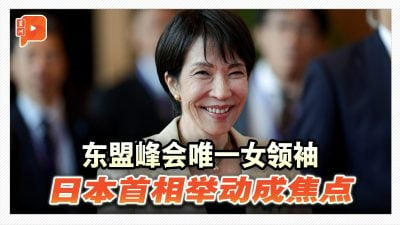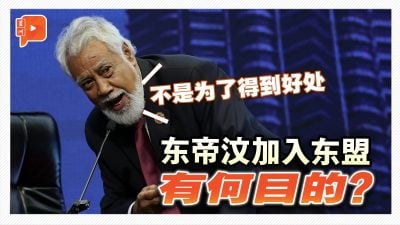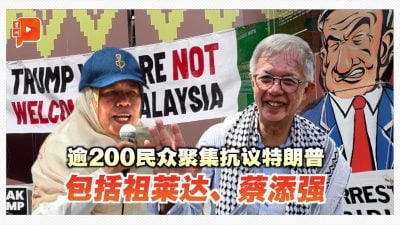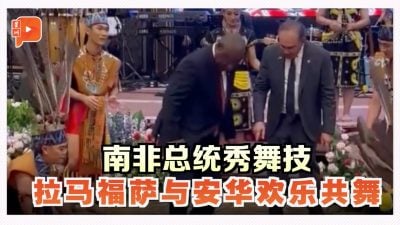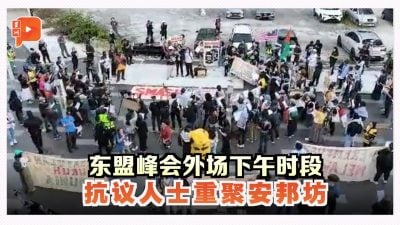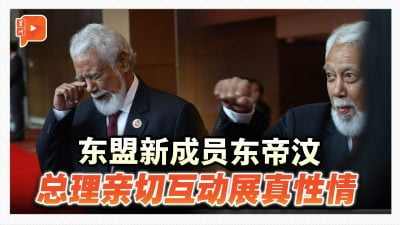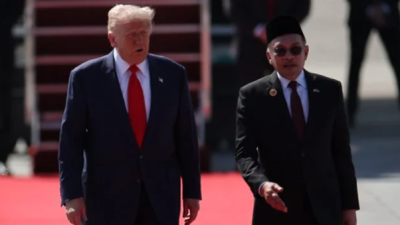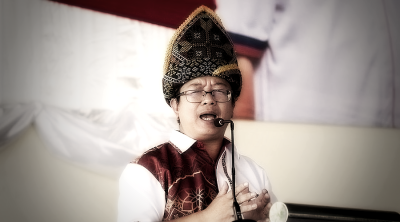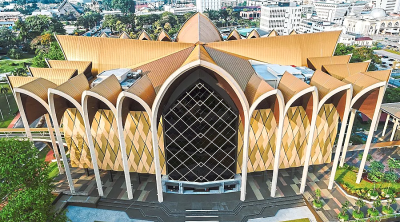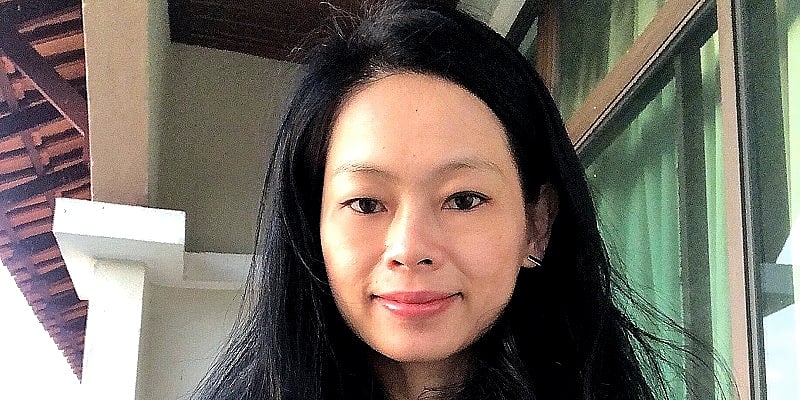
26 October 2025 marks a historic moment. In Kuala Lumpur, Timor-Leste is officially joining ASEAN as its 11th member state.
For most Malaysians, the name Timor-Leste may feel distant; a small country on the periphery of Indonesia, known mainly through fragments of history and humanitarian headlines.
Yet its accession is not just another expansion of ASEAN. It is the return of a long-ignored story to Southeast Asia’s collective consciousness, one that reminds us of what regional solidarity once meant, and what it could still mean.
From resistance to nationhood
Timor-Leste’s history is written in endurance. Colonized by Portugal for more than four centuries, it declared independence in 1975, only to be invaded by Indonesia nine days later.
For 24 years, the Timorese people lived under occupation, resisting through the mountains, through art, and through silence.
Nearly a third of the population perished. Yet the resistance persisted, led by figures such as Xanana Gusmão and José Ramos-Horta, who carried their struggle from the jungles to the United Nations, from guerrilla warfare to diplomacy.
In 1999, the UN supervised a referendum, and the Timorese voted overwhelmingly for independence.
The cost was immense, including destroyed homes and lives uprooted. When peacekeepers entered Dili, the city was in ruins. But amid the ashes, the Timorese people rebuilt.
In 2002, the world witnessed the birth of Southeast Asia’s youngest nation; fragile, poor, yet fiercely proud.
Two decades later, the journey continues. Timor-Leste remains small with a population of 1.3 million and an economy still reliant on oil and gas, but it is also among the region’s most democratic societies.
Power transitions peacefully, elections are competitive, and civil society is vibrant.
In a region where democracy often retreats, this is no small achievement.
Malaysia’s relationship with Timor-Leste, however, is not a new one. During the occupation years, Kuala Lumpur, like other ASEAN capitals, upheld the principle of non-interference, aligning with Jakarta’s stance that Timor-Leste was an “internal matter.”
That silence reflected ASEAN’s cautious diplomacy, but it also left a moral wound.
When the violence broke out in 1999, Malaysia became part of the UN-sanctioned peacekeeping force (INTERFET). Our troops were among the first to land in Dili to help restore order.
It was a moment of quiet redemption, when Malaysia moved from silence to solidarity.
Since then, diplomatic ties have deepened. Malaysian educators, engineers, and advisers have worked in Dili; Timorese students have studied in Kuala Lumpur.
These small but meaningful connections have built a bridge that now finds new significance as Malaysia chairs ASEAN during Timor-Leste’s formal admission.
When Malaysia stood up: The APCET story
To understand why Timor-Leste’s membership matters, we must also remember an event that tested Malaysia’s conscience long before independence was achieved; the Asia Pacific Conference on East Timor (APCET) in 1996.
At that time, Malaysia was not yet ready to talk openly about Timor-Leste.
The Suharto government in Indonesia was still powerful, and the issue was seen as a threat to regional harmony. Yet a coalition of Malaysian NGOs and activists, joined by international human rights groups, tried to hold APCET in Kuala Lumpur to call for self-determination for the Timorese people.
What followed was dramatic. The Malaysian government, under pressure from Jakarta, banned the conference. Police raided the venue, detained participants, and forced the foreign delegates to leave the country.
It was one of the rare moments when Malaysia’s civil society directly challenged ASEAN’s principle of non-interference. The message from the streets was clear, silence is not neutrality.
That episode is often forgotten in our national memory, yet it matters deeply today. It reminds us that Malaysia’s connection to Timor-Leste was not only through governments, but also through people; through activists, students, and ordinary citizens who believed that human rights and freedom were regional responsibilities, not external impositions.
Nearly three decades later, the spirit of APCET comes full circle. The same country that once silenced discussion on East Timor now hosts its entry into ASEAN.
History, in its quiet irony, has turned dissent into diplomacy.
The ideals once dismissed as “interference” have become the very principles ASEAN must rediscover, namely the justice, solidarity, and shared humanity.
Just as overlooked is the story of the Chinese-Timorese or Timorese-Chinese community. They are small in number, yet deeply woven into Timor-Leste’s past and present.
Chinese migrants have lived there since the sixteenth century, establishing trade routes between Macau, Malacca, and Dili long before the modern nation was born.
Many endured hardship and loss during the Indonesian occupation, yet some returned to rebuild after independence, restoring shops and livelihoods from the ruins.
Today, Chinese-Timorese families run grocery stores, restaurants, and small industries in Dili, and beyond, contributing quietly to the country’s economic and social fabric. Their experience mirrors that of many Chinese communities across Southeast Asia lives shaped by both displacement and resilience, belonging and difference.
What Timor-Leste brings and what ASEAN must learn
Timor-Leste’s entry completes the geographical map of Southeast Asia, but more importantly, it fills a moral gap.
Its presence brings back the voice of a nation that has suffered, rebuilt, and refused to give up.
In doing so, it holds up a mirror to ASEAN, asking whether the region still remembers the values it was founded on.
Timor-Leste’s challenges are well known. Its economy depends heavily on petroleum revenues; its infrastructure remains weak; unemployment is high.
Participation in ASEAN will not be easy. Attending hundreds of annual meetings, aligning policies, and managing complex technical cooperation will stretch the country’s administrative capacity. But these are precisely the reasons ASEAN must do more than welcome Dili with ceremony, it must invest in its success.
Malaysia can and should play a leading role. Our development experience offers practical models for public administration, education, and capacity building.
Collaborative initiatives from civil service exchanges to vocational training and digital literacy could give substance to the idea of “ASEAN community.”
Supporting Timor-Leste is not charity; it is enlightened self-interest. A stronger, more resilient Dili contributes to a more balanced and credible ASEAN.
At the same time, Timor-Leste brings qualities that the region desperately needs, they are conviction and memory. Its politics, though messy, somehow retains a moral compass shaped by struggle. It is a country that knows the price of silence and the meaning of solidarity; lessons ASEAN cannot afford to forget.
The challenge for the bloc, however, lies in practice. Can ASEAN treat its newest and poorest member as an equal partner? Can it balance consensus with compassion?
If ASEAN’s community project means anything, it must go beyond markets and summits. It must extend to inclusion, empathy, and justice.
Timor-Leste’s foreign policy is one of balance: “friends with all, enemies with none.” Its relations with larger powers, whether Australia, China, or Portugal are pragmatic. Yet, the real question is not who influences Timor-Leste, but how ASEAN supports it.
If the region wishes to maintain its own agency, it must demonstrate that its community offers more than symbolism.
The timing of this admission could not be more meaningful. For Malaysia, chairing ASEAN in 2025 and hosting this ceremony in Kuala Lumpur is a chance to show leadership anchored in humility, the kind that builds bridges rather than walls.
For Southeast Asia, welcoming Timor-Leste is an act of healing, a way of rewriting an old chapter marked by silence and indifference.
And for Timor-Leste itself, it is not the end of a struggle but the beginning of a new one; the struggle to thrive, to be heard, and to belong on equal terms.
Its chosen slogan for ASEAN membership, Together We Rise, carries both simplicity and strength. Yet rising together requires more than optimism; it demands recognition that solidarity is not an abstract idea but a practice, one built through patience, empathy, and shared responsibility.
And today, in Kuala Lumpur, as the smallest nation in the region takes its seat among us, that practice begins anew.
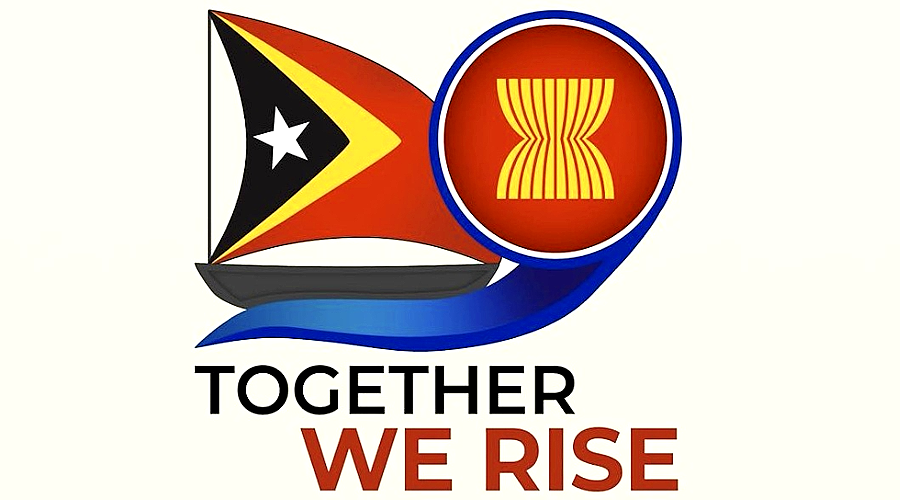
(Khoo Ying Hooi, PhD, is an Associate Professor of International Relations and Human Rights at Universiti Malaya. Her work spans human rights research, diplomacy, and policy engagement across ASEAN and Timor-Leste, along with active contributions in editorial and advisory capacities.)
ADVERTISEMENT
ADVERTISEMENT






